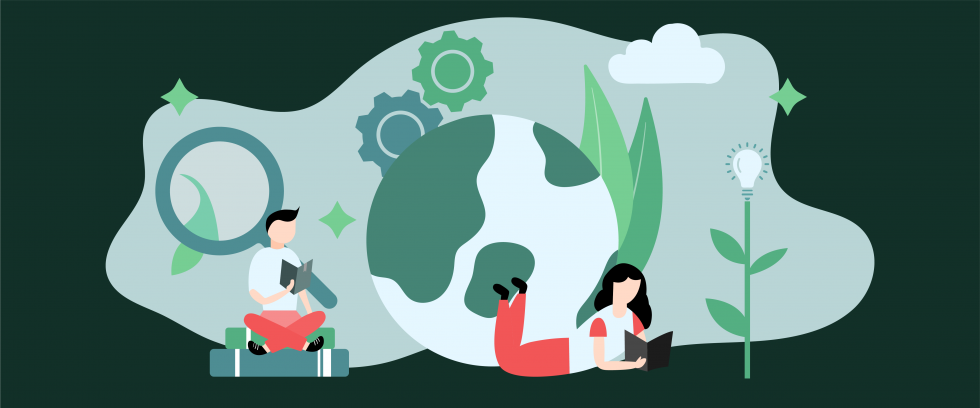Whole institution approach
The School of Economics and Business of the University of Ljubljana (SEB UL) deals with the issue of environmental sustainability in a truly comprehensive way, addressing all the dimensions mentioned above. Already at the mission and vision level, the role of SEB UL in creating research and educational collaborations in order to find innovative and sustainable solutions for the entire society is emphasized. The mission emphasizes in several places the role of the economy in responding to the constantly changing situation of society and the environment.
Already in 2011, solar panels were installed on the roof of the SEB UL building, which reduce emissions related to the energy needs of the building. The project was co-implemented with the Faculty of Electrical Engineering. Two years later, a completely new heating, cooling and ventilation system was installed, leading to further significant energy consumption reduction.
In 2017, the SEB UL joined the global Eco-Schools program, which aims to holistically support educational institutions in their transformation towards sustainable development and responding to environmental issues. This was preceded by a very bottom-up efforts of teams of students and employees who cared about the presence of the issue of sustainable development as a dimension of the SEB UL activities.
School of Economics and Business has an extensive list of activities under Corporate Social Responsibility, always including elements of influencing environmental issues also through extensive cooperation with partners such as the Chamber of Commerce or the Association of Slovenian Managers. The SEB UL became one of the signatories to the UN Principles for Responsible Management Education (PRME) in 2009. PRME encourages business schools to integrate the concepts of sustainable development and social responsibility in their education and research activities.
The activities of the faculty are very systematically included in the green mission - making it an integral dimension of all types of its activities – including, of course, the scientific activity of its employees. In the research and publications produced by the SEB UL we will find all the key issues now - such as the conditions for the retrofit of buildings, supporting the circular economy, green taxes or social conditions of cooperation.
SEB UL began demonstrating the relevance of research to achieving the UN Sustainable Development Goals (SDGs) in 2020. 87 percent of SEB UL publications in 2022 are relevant to achieving one or more SDGs. The top three SDGs SEB UL contributes through its research in 2022 are SDG 8 – Decent work and economic growth, SDG 9 – Industry innovation and infrastructure, and SDG 3 – Good health and well-being.


